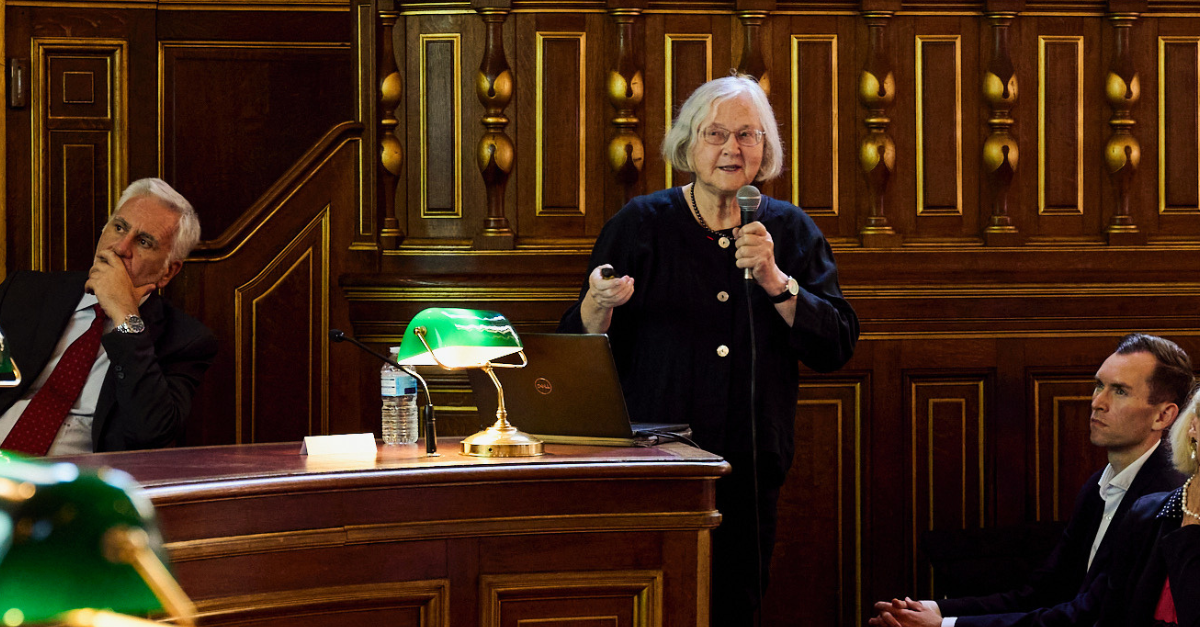Planting the Seeds for the Education of Tomorrow: Looking Back at the Aurora Annual Conference 2025

From May 19 to 22, 2025, the Université Paris-Est Créteil (UPEC) hosted the Aurora Annual Conference 2025, bringing together thought leaders, experts, academics, staff, and students from Aurora universities and beyond. The event fostered dynamic exchanges around education, research and innovation, sustainability, and societal impact.
 Aurora Annual Conference 2025 attendees from Aurora universities across Europe
Aurora Annual Conference 2025 attendees from Aurora universities across Europe
© Ciprian Olteanu
The conference began with an opening ceremony at the historic Amphithéâtre Liard in La Sorbonne, with welcome remarks by Prof. Martin Schwell, Vice-president European Affairs and Aurora Institutional Coordinator at UPEC. The President of UPEC Prof. Jean-Luc Dubois-Randé gave a resounding opening address. He highlighted the essential role of European universities like Aurora in preserving and enriching knowledge through new forms of European integration, such as the creation of joint degrees and intercultural experiences.
“Aurora’s commitment to, and impact on, society and the environment, are powerful vectors for the creation and sharing of knowledge and, by extension, for profound transformation,” said Prof. Jean-Luc Dubois-Randé.


Prof. Jean-Luc Dubois-Randé, President of Université Paris-Est Créteil (UPEC) addresses a full house at La Sorbonne, Paris
© Ciprian Olteanu
In his opening speech, Dr. Ramon Puras, Aurora Secretary General, added that the transformative power of Aurora also lies in its ability to harness strong collaboration and harmonise systems across its member universities.
One of the major highlights of the Aurora Annual Conference was the ceremonial handover of the Aurora presidency. Through a symbolic “passing of the baton” from Prof. Martin Procházka of Palacký University Olomouc to Prof. Veronika Sexl of Universität Innsbruck, this change in leadership marks a new chapter for Aurora and its universities.
Nurturing deeper academic reflections, Nobel Laureate Elizabeth Blackburn delivered a fascinating keynote address on her groundbreaking discoveries in the field of cellular biology, which have had profound implications for aging, cancer research, and cellular biology.


European Universities for Research, Education, Students’ Rights and Sustainability
Throughout the week, the conference featured engaging plenary sessions on a range of topics from the future of the European Universities Initiative and building scientific communities in Aurora, to students’ rights and representation.
Next to the plenary programme, the Aurora Annual Conference featured many additional workshops, strategy sessions, and task team meetings throughout the week. These gatherings enabled further cooperation and progress on topics in Aurora relating to research support network, educational hubs, international mobility, and citizen science.
Beyond the formal sessions, there was also ample space for networking, culminating with the Gala dinner and reception at the stunning Musée national de l’histoire de l’immigration, and its aquarium in Palais de la Porte Dorée, Paris. During the dinner, two prominent Aurora events took place: the seizmic Awards 2024 ceremony, featuring winners Team thisAbility from Copenhagen Business School (CBS) and runners-up Team Synergy Hydrogen Solutions from Vrije Universiteit Amsterdam. The second event was the 3MT competition pitches by winners Stéphanie Chedid and Juliette Direur from UPEC.




The three-day conference also saw the rise of the first-ever Aurora Sustainability Summit. The summit spotlighted Aurora’s impressive achievements in developing best practices for sustainable campuses. Furthermore, it brought to light the challenges ahead in the creation of greener, more sustainable universities. The summit featured plenary sessions, followed by interactive workshops exploring key themes such as futures literacy, climate action, and biodiversity.
The Aurora Annual Conference 2025 served as a window into Aurora’s progress thus far. It provided an insight into its ever-growing community as actors of change planting the seed to shape a more inclusive, greener, and sustainable European higher education landscape.